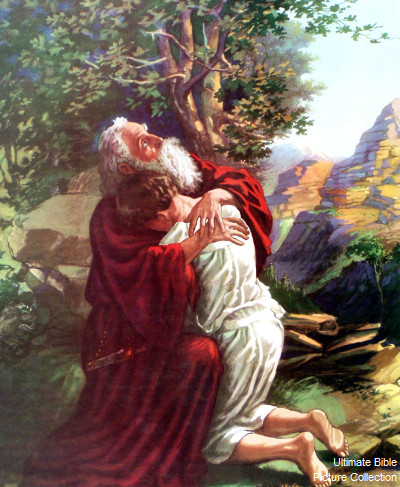You can read the
first installment of my excerpts of Lumen Fidei here. It includes an introduction and links to an
overview.
I’ll repeat the
structure of the encyclical to orient you for the next excerpt. Numbers in parentheses indicate the paragraph
number.
Introduction (1-7)
Chpt 1: We Have
Believed In Love (8-22)
Chpt 2: Unless You
Believe, You Will Not Understand (23-36)
Chpt 3: I Delivered
To You What I Also Received (37-49)
Chpt 4: God
Delivers A City For Them (50-60)
The most remarkable
passage from Chapter 1 is the paragraph where our Holy Father pulls together
the full meaning of Abraham’s story and connects it with why faith is so
important to our lives. Here is the 11th
paragraph:
11. A final element of the story of
Abraham is important for understanding his faith. God’s word, while bringing
newness and surprise, is not at all alien to Abraham’s experience. In the voice
which speaks to him, the patriarch recognizes a profound call which was always
present at the core of his being. God ties his promise to that aspect of human
life which has always appeared most "full of promise", namely,
parenthood, the begetting of new life: "Sarah your wife shall bear you a
son, and you shall name him Isaac" (Gen 17:19). The God who asks
Abraham for complete trust reveals himself to be the source of all life. Faith
is thus linked to God’s fatherhood, which gives rise to all creation; the God
who calls Abraham is the Creator, the one who "calls into existence the
things that do not exist" (Rom 4:17), the one who "chose us before
the foundation of the world… and destined us for adoption as his children"
(Eph 1:4-5). For Abraham, faith in God sheds light on the depths of his
being, it enables him to acknowledge the wellspring of goodness at the origin
of all things and to realize that his life is not the product of non-being or
chance, but the fruit of a personal call and a personal love. The mysterious
God who called him is no alien deity, but the God who is the origin and
mainstay of all that is. The great test of Abraham’s faith, the sacrifice of
his son Isaac, would show the extent to which this primordial love is capable
of ensuring life even beyond death. The word which could raise up a son to one
who was "as good as dead", in "the barrenness" of Sarah’s
womb (cf. Rom 4:19), can also stand by his promise of a future beyond
all threat or danger (cf. Heb 11:19; Rom 4:21).
“For Abraham, faith
in God sheds light on the depths of his being, it enables him to acknowledge
the wellspring of goodness at the origin of all things and to realize that his
life is not the product of non-being or chance, but the fruit of a personal
call and a personal love.”


No comments:
Post a Comment